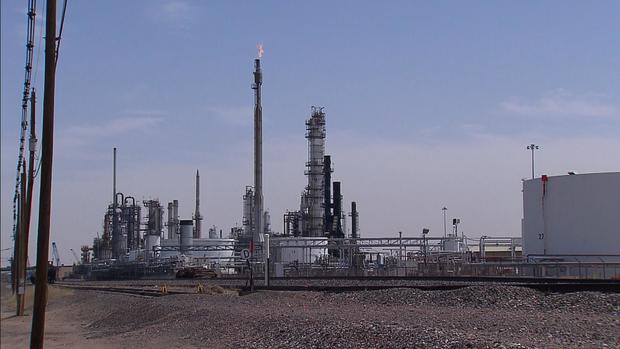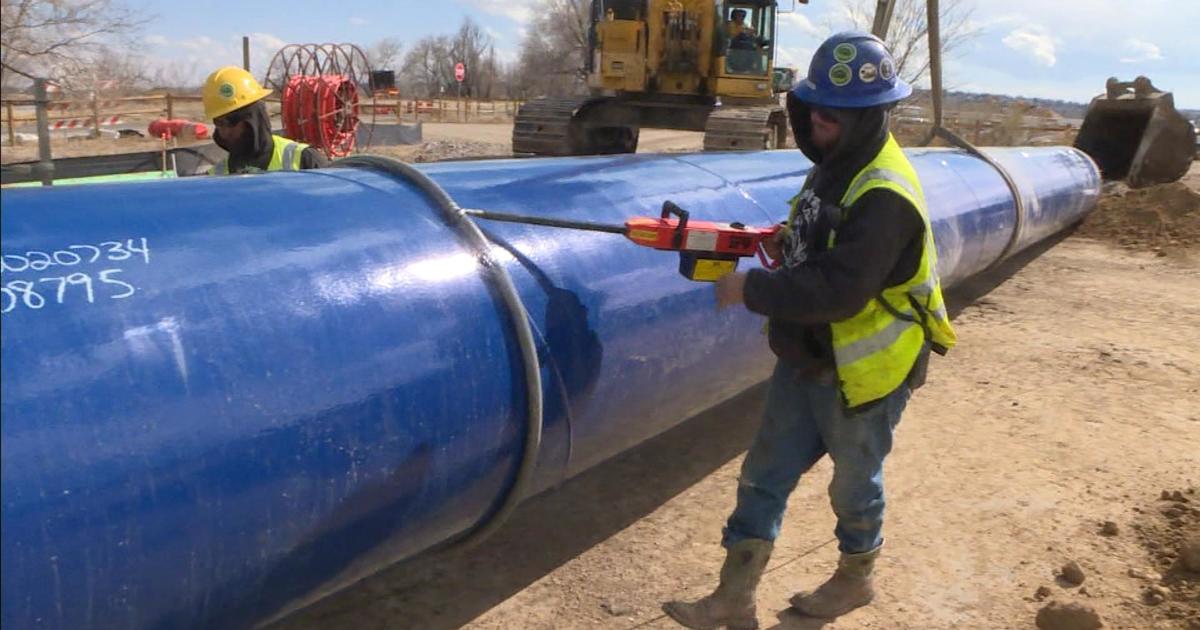Measures being taken to limit the economic pain in Colorado after Suncor's temporary refinery closure
Suncor announced last week it is temporarily shuttering refining operations in the Denver area, and the move will likely affect your pocketbook. That's according to the Colorado Wyoming Petroleum Marketers Association.
The late December cold snap damaged equipment at the Commerce City plant and Suncor said it could take weeks to bring the refinery back online.
CWPMA's Grier Bailey compared the refinery shutdown to Xcel Energy saying 40% of its energy grid was offline. Suncor is the largest supplier of transportation fuel in Colorado, with a capacity to refine 103,000 barrels of crude oil every day, making up to 40% of the state's supply.
"This is leaving an elephant-sized gap in the supply market," Bailey said. The degree to which gasoline prices will go up locally depends on the degree to which other refineries can cover the gap while Suncor's remains closed, Bailey added.
The impact will be felt by consumers, Bailey said, and also by industries including agriculture, skiing and more.
Governor Jared Polis issued a verbal executive order January 1st to activate a State Emergency Operations Plan and his office outlined several measures being taken:
"The Governor has contacted other refiners in other parts of the country to minimize any disruption, and maximize distribution of gas to Coloradans pursuing every avenue to mitigate the impacts of the Suncor's temporary shutdown. This includes issuing a forthcoming Executive Order for an emergency declared on December 31, 2022, that suspends certain statutory truck weight limits to allow motor carriers involved in the gasoline and fuel transportation to travel on state highways with heavier loads.
Further, state agencies have issued a regulatory exemption to hours of service limitations, allowing fuel carriers to work more hours delivering fuel and regulatory relief is being implemented to increase the efficiency of the loading and routing of fuel haulers. State agencies also are proactively reviewing additional tools available to ensure that adequate supply is able to reach distributors throughout the state.
The emergency declaration in order will provide all necessary tools to provide temporary regulatory relief to reduce any potential fuel supply chain risk in Colorado due to the temporary shutdown at the Suncor oil and gas refinery. Regulatory relief includes but is not limited to trucking hours, truck weight limits, and streamlined pipeline transporting regulations.
- On 12/31, The Governor issued an executive order. This verbal declaration activates the State Emergency Operations Plan and directs the Office of Emergency Management (OEM) to take necessary and appropriate State actions to assist the affected jurisdictions with their response, recovery, and mitigation efforts.
- On 12/29/22, the Colorado State Patrol issued a Hours of Service (HoS) exemption to commercial transporters of diesel and gasoline. The exemption is set to expire on January 31st, 2023. (But can be extended if deemed safe and necessary.)
- CDOT has permitted heavier loads to ease transport on state highways. "
In a statement released Dec. 28, Suncor said, It "was determined that the entire facility would be shut down and put into safe mode to allow for the inspection of all units and repair of the damaged equipment. The inspection and repair of the damaged equipment is ongoing. Based on our current assessment we anticipate a progressive restart of the facility with a return to full operations expected to be completed by late Q1 2023."
Bailey said he hoped the refinery can go fully back online sooner than three months from now, and the impact of such a long shutdown, he said, would be "detrimental."
Suncor responded to CBS News Colorado on Thursday about the latest refining operations in a statement saying:
"While we work to repair and then re-start different areas of the refinery, there may be increased flaring, noise and traffic related to our operations. We are taking precautions to ensure these disruptions are kept to a minimum.
Throughout this process, we are continuously monitoring air quality in the community through CCND Air. CCND Air is operated and maintained by a third-party team of environmental experts at Montrose Air Quality Services (Montrose), which implements a rigorous quality assurance (QA) program to ensure the validity and quality of the data collected. To date, data gathered from CCND Air Monitors has not indicated any acute public health concerns. Specifically, concentrations for all compounds measured remained below acute health guideline values before, during and following the events leading up to December 24.
As a major producer and supplier of transportation fuel products in Colorado, we are working with government officials, our customers, and other stakeholders to understand potential impacts to product supply in Colorado including gasoline, diesel, jet fuel and asphalt and we are working to secure alternate supply, with priority for emergency and essential services being considered to minimize the impact on Coloradans.
We appreciate the patience of our neighbors and all residents of Colorado who rely on our products as we work through our repair programs and return our facility to normal operations"




